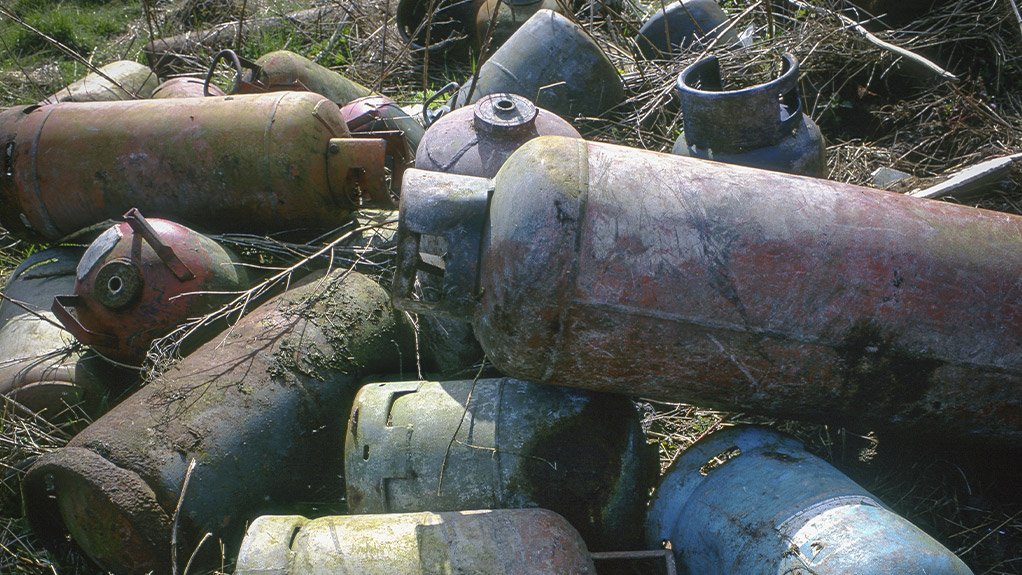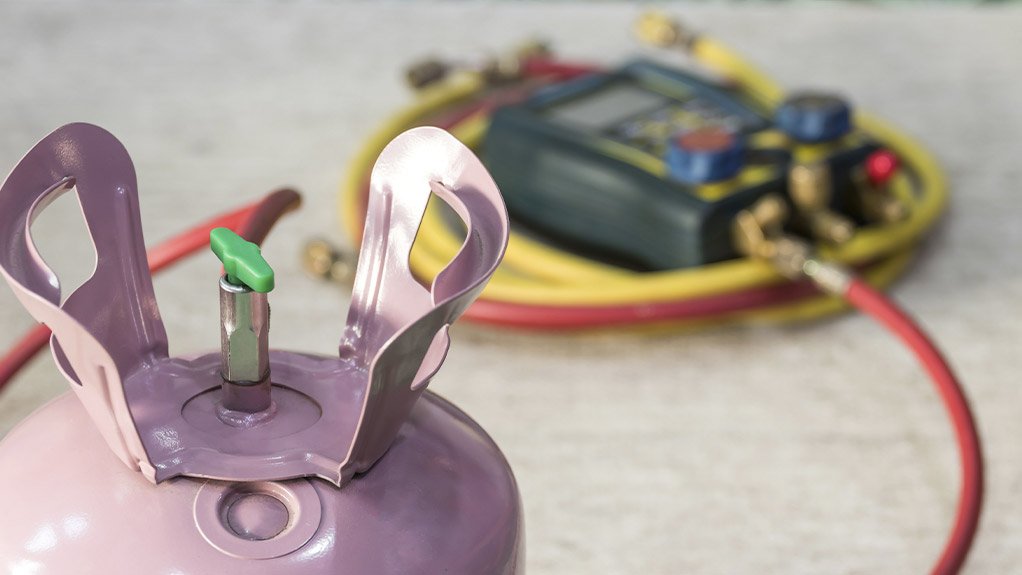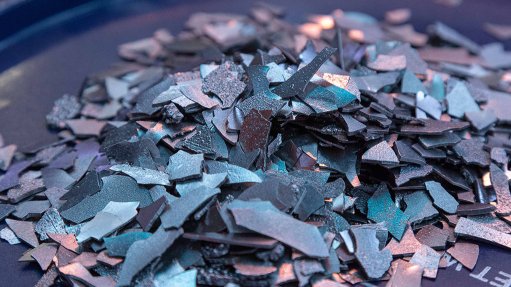Renewed call to ban disposable cylinders



TIME TO SCRAP THIS PRACTICE Disposed cylinders create about 3 150 m3 scrap metal and can explode if not thoroughly evacuated
UNDER PRESSURE The ban on disposables is being considered in consultation with industry stakeholders, but is facing vocal pushback from end-users
Despite various heating, ventilation, air-conditioning and refrigeration (HVAC-R) industry participants contesting the banning of disposable gas cylinders in South Africa for years, there is no indication of a decision on the matter being reached.
South African Refrigeration and Air-Conditioning Contractors Association (Saracca) director Barney Richardson bemoans the availability of disposable cylinders in South Africa, stating that it is “a big problem”.
“We need to follow the example of many developed economies in this regard and phase out the use of disposable cylinders in SA soonest,” adds South African Institute of Refrigeration and Air-Conditioning (Sairac) president Marius La Grange, claiming that the increased pressure on all industries to be more conscious of their contributions to climate change makes it an urgent matter.
Disposable cylinders are low-cost, specially manufactured single-use containers made of thin sheet metal and are not certified for reuse. They are charged with refrigerant, then sold for use in servicing or commissioning equipment. Thereafter, they are discarded.
This leads to large quantities of scrap metal being generated, which might be more acceptable if scrap metal merchants were less reluctant to accept the depleted cylinders.
“You can’t simply dump them in a landfill without evacuating them first, because it’s illegal. Moreover, scrap metal merchants often won’t accept them because of the residual gas inside, which makes them dangerous,” Richardson explains.
La Grange adds that these disposable containers are never emptied completely.
“To get 100% of the refrigerant out of the cylinder, it would need to be exposed to a portion of the refrigeration system below atmospheric pressure – in a vacuum.”
He adds that this is harmful to most systems and does not often result in completely empty containers when a system is already charged. The balance of the synthetic refrigerants remaining in the cylinders is released into the atmosphere when the containers are scrapped.
“The volumes per cylinder might seem insignificant, but consider the millions of disposable cylinders used and it adds up to a significant direct impact on global warming,” he says.
The vapour heel represents about 3% of the refrigerant charge, whereas the liquid heel represents up to 8%.
In a report submitted to the then Department of Environmental Affairs by refrigerant distributor A-Gas in August 2015, it was estimated that about 225 000 disposable cylinders are sold in South Africa every year, of which about 70% are filled with R22, a hydrochlorofluorocarbon (HCFC).
The report states that the heel remaining in the cylinders after disposal is anywhere between about 400 g – about 2.94% of the original charge – and 680 g – about 5% of the original charge. This equates to a significant amount of ozone depleting substances, including carbon dioxide and other harmful emissions, being released into the atmosphere if the cylinders are not properly disposed of.
There is also the estimated 3 150 m3 scrap metal produced, which often ends up in landfill.
Richardson explains that proper disposal is a somewhat arduous procedure, which a large number of end-users neglect to follow. It requires that the cylinders be thoroughly evacuated of all residual gas through the implementation of a total vacuum, and then punctured to ensure that they cannot be reused. This needs to be carried out carefully by qualified professionals.
“Sometimes, however, end-users modify the one-way valves on the cylinders so that they can be reused, which is extremely dangerous and illegal,” he warns.
This process involves bypassing an integral safety device built into the disposable cylinder by the manufacturer to prevent over-pressurisation. This practice can lead to explosions.
Further, it is difficult to assess the consistent quality of the gas when it is delivered in disposable cylinders.
“Consistent refrigerant quality with disposable cylinders is difficult to guarantee. Disposable cylinders necessitate spots checks within a batch to try ensure that the refrigerant quality is consistent,” La Grange says, adding that customs and environmental officials would have a much simpler task checking large shipping-sized containers.
Globally, the illegal trade in chlorofluorocarbon and HCFC refrigerants relies heavily on disposable cylinders to operate. La Grange claims that banning all disposable cylinders globally would go a long way towards a reduction in illegal trade.
Richardson notes that, although the Department of Environment, Forestry and Fisheries (DEFF) is still actively considering the ban in consultation with industry stakeholders, it is facing vocal pushbacks from end-users who claim that it would damage the economy and take away jobs.
For example, in an open letter to the DEFF, published in HVAC-R industry publication Cold Link Africa in 2018, HVAC-R services provider AC&R Components owner Trevor Dyer claims that the call to ban disposable cylinders is not about protecting the environment at all, but rather an underhanded bid for certain industry participants to gain a larger market share.
“I don’t think we should accommodate an informal sector that re-gasses motor vehicle air-conditioners – for example – without attending to the reason for the leak, at the cost of the environment,” La Grange rebuts.
He says that, ideally, synthetic refrigerants in disposable cylinders should not be sold over the counter to those not in possession of the required South Africa Qualification and Certification Committee gas registration.
The alternative to disposable cylinders is to supply refrigerants in reusable cylinders, also known as reclaim cylinders, which are in short supply, according to Dyer, and which could lead to hundreds of businesses not having their refrigeration service needs met by the HVAC-R industry.
Conversely, Richardson believes that it is merely end-users, who use the disposable cylinders on a daily basis, wanting to do the job in the easiest way possible.
However, he is confident that, eventually, the ban on disposable cylinders will be implemented.
La Grange believes there is much potential for the local industry to provide supplies and services when disposable cylinders “inevitably” become illegal.
“Certified reusable containers would be needed, and they would need to be recertified periodically. They would need to be cleaned and properly evacuated for reuse regularly,” he says.
He believes that this would translate to training centres having greater demand for their specific services as well, to ensure that the local industry and small business owners can provide these services at a high standard.
Article Enquiry
Email Article
Save Article
Feedback
To advertise email advertising@creamermedia.co.za or click here
Press Office
Announcements
What's On
Subscribe to improve your user experience...
Option 1 (equivalent of R125 a month):
Receive a weekly copy of Creamer Media's Engineering News & Mining Weekly magazine
(print copy for those in South Africa and e-magazine for those outside of South Africa)
Receive daily email newsletters
Access to full search results
Access archive of magazine back copies
Access to Projects in Progress
Access to ONE Research Report of your choice in PDF format
Option 2 (equivalent of R375 a month):
All benefits from Option 1
PLUS
Access to Creamer Media's Research Channel Africa for ALL Research Reports, in PDF format, on various industrial and mining sectors
including Electricity; Water; Energy Transition; Hydrogen; Roads, Rail and Ports; Coal; Gold; Platinum; Battery Metals; etc.
Already a subscriber?
Forgotten your password?
Receive weekly copy of Creamer Media's Engineering News & Mining Weekly magazine (print copy for those in South Africa and e-magazine for those outside of South Africa)
➕
Recieve daily email newsletters
➕
Access to full search results
➕
Access archive of magazine back copies
➕
Access to Projects in Progress
➕
Access to ONE Research Report of your choice in PDF format
RESEARCH CHANNEL AFRICA
R4500 (equivalent of R375 a month)
SUBSCRIBEAll benefits from Option 1
➕
Access to Creamer Media's Research Channel Africa for ALL Research Reports on various industrial and mining sectors, in PDF format, including on:
Electricity
➕
Water
➕
Energy Transition
➕
Hydrogen
➕
Roads, Rail and Ports
➕
Coal
➕
Gold
➕
Platinum
➕
Battery Metals
➕
etc.
Receive all benefits from Option 1 or Option 2 delivered to numerous people at your company
➕
Multiple User names and Passwords for simultaneous log-ins
➕
Intranet integration access to all in your organisation




















